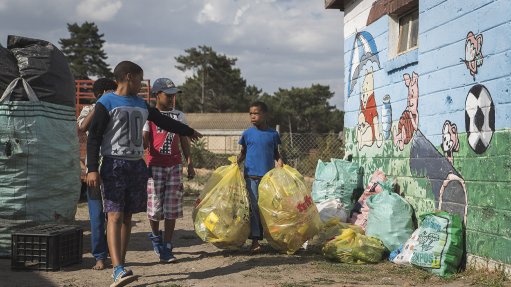
BRIGHTER FUTURE Plastic SA wants to prevent plastic waste from ending up in the environment
Having recycled 46.3% of plastic waste last year, plastics industry association Plastics SA aims to recycle 48% of plastic waste by the end of this year, despite economic challenges.
“Despite the poor performance of the economy in the first half of the year, recycling is continuing. There is so much activity around recycling that the recycled plastic waste could work out to be more than 48% this year,” Plastics SA executive director Anton Hanekom tells Engineering News.
In 2018, the growth in plastics recycling was 6.7% more than in 2017, and Hanekom is hoping that the increase will continue this year.
“Ultimately, we want to prevent plastic waste from ending up in the environment. We do want to effectively design and implement strategies that minimise waste completely, but we also need to ensure that waste material is recycled where possible.”
Although Plastics SA aims to increase recycled production for 2019, Hanekom explains that recycled material is not immune to the economic challenges that South Africa faces.
When recycling waste material, there is a value on the recyclate. Processing the recyclate is not as easy as processing virgin material, as there are impurities in recyclates.
“The price of virgin plastic materials, such as commodities, fluctuates on a regular basis, and the price of a recyclate needs to move in parallel with this price, regardless of the complexities associated with processing it. If the price gap between virgin material and recycled material is too narrow, there is no motivating benefit in using recycled materials,” Hanekom explains.
Therefore, Plastics SA is establishing several initiatives, such as the South African Initiative to End Plastic Waste in the Environment, which comprises role-players from across the plastics packaging value chain that will collaborate to prevent and, ultimately, end plastic waste in the environment.
This initiative is implemented in all aspects of the value chain from international and local brand owners, retailers and fast food chains to textile and clothing industries, polymer producers, manufacturers/converters and associations.
“We are working with the full value chain to design plans that will implement packaging solutions and, by working with government, businesses and community networks, we can innovate and formulate more sustainable recycling solutions,” Hanekom concludes.